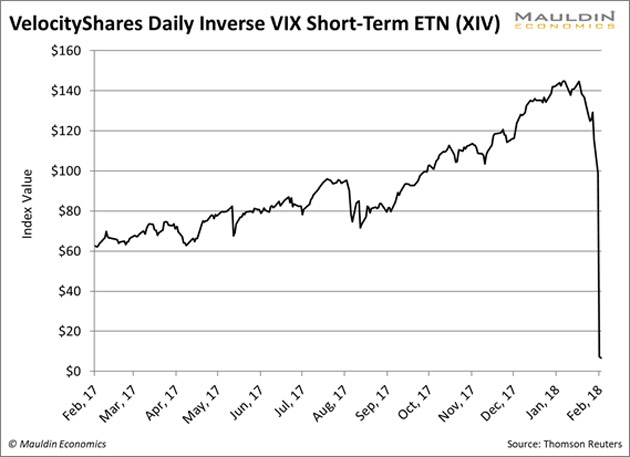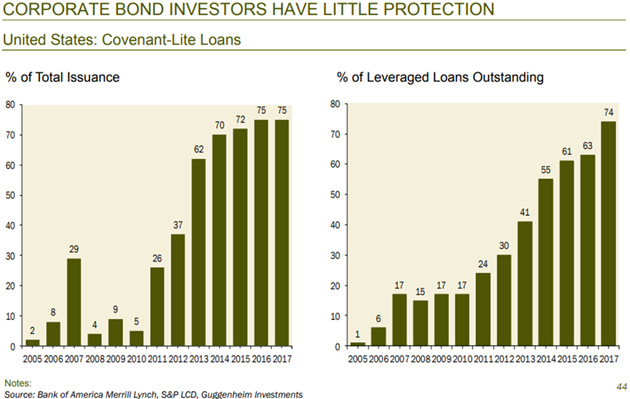didja know that Wisdom Tree launched a CoCo bond ETF last week?
We've discussed liquidity traps before but not in this context.
Markets are made when one entity wishes to sell something and another entity wishes to buy something. If you have something worthless, nobody wants to buy it.
"junk" bonds are those that are risky investments. Because they are risky investments, they earn their holders high interest rates. It's just like car insurance: if you've got a DUI and three accidents on your record, you pay more to insure your car. If you have difficulty paying your credit card bill, your interest rate goes up. The insurance company makes money because the risk of any one driver costing them more than they earn is spread across lots of drivers. This, by the way, is why flood insurance is federally guaranteed: the risk of one homeowner costing more than they earn the insurance company is 100% which means we, the taxpayers, cover the difference.
Nobody is covering the difference in high yield bonds, and there are more high yield bonds right now than ever before.
And when it comes time to sell, there won't be anyone to buy.
- This time, I believe the collapse will go deeper and happen faster because Dodd-Frank has decimated market makers’ ability to cushion it. Likewise, the Fed will be reluctant to bail out ridiculously priced bonds like WeWork and its many covenant-lite, unsecured brethren
( ^ from the Preview)
- We’re seeing classic end-of-cycle behavior: throw caution to the wind and plunge capital into the market’s riskiest corners. This artificially-induced buying is propping up companies that would otherwise succumb to the fundamental forces arrayed against them.
His parallel of corporate debt being the new mortgage debt is absolutely fascinating. 'Huge if true'. There have been discussions on here before about similar hypotheses, but I feel like this summarizes a bunch of those ideas together. So if I understand it correctly, regular stocks and bonds are no longer yielding enough to keep all our yield-based financial products afloat (e.g. pensions), which has pushed investors into riskier and riskier territory, as that final graph shows and as startup culture (and even crypto?) confirms. If the only things that have a return on investments are Greater Fool Theory-esque things that have little to no real value, it is increasingly likely that we're talking about a row of dominoes easily toppled by one and that
- [...] investors have essentially gone insane.
I also think there is an interaction effect between corporate debts/spurious VCs, student loan debt/spurious degrees and the erosion of the middle class that is entirely sidelined here. But I don't know enough about any one of those to connect those dots.
posted 2160 days ago

